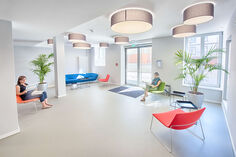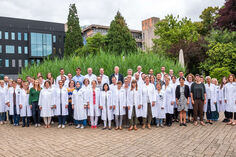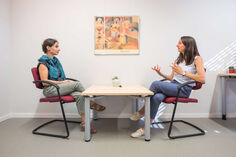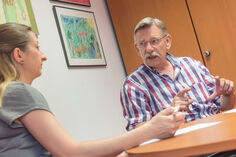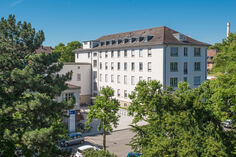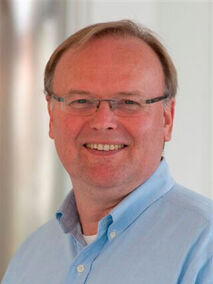SMILE: A platform for strengthening the mental health of young people
(original: SMILE: Supporting Mental Health in Young People: Integrated Methodology for cLinical dEcisions and evidence based interventions).
Summary
In a rapidly evolving society, psychological distress, anxiety, and depression pose significant challenges, especially for adolescents and their families. Stressors can lead to a wide range of consequences for each individual. While distress does not necessarily lead to an illness, access to timely support is not always guaranteed. Embarrassment and fear of stigmatization, particularly among young people, prevent them from discussing their needs. Additionally, the possibilities and methods for diagnosis and treatment vary greatly within Germany, and across European borders.
The SMILE project aims to address these issues by developing a Knowledge Management Ecosystem Portal (KM-EP) that offers digital tools for children, adolescents and young people (aged from 10 to 24 years old). These AI-tools provide a gamified environment focused on mental health, that includes virtual self-assessments and self-monitoring in areas like mental stress, self-efficacy, and well-being, all integrated into gamified scenarios. Additionally, SMILE intends to develop improved practices for building resilience, enhance cognitive flexibility, learn coping skills and social competence as well as the ability of dealing with negative thoughts. The KM-EP also aims to unlock access specific knowledge about mental stress to parents, teachers, decision-makers, and health professionals, increase awareness about the mental needs of young people. The platform will be accessible to EU citizens and will be available in multi-languages of the involved partner institutions.
In this project, we adopt (implement) a participatory approach and invite children, adolescents, young adults and their families, teachers and health professionals to contribute to the building and elaboration of the Knowledge base. The next step is the evaluation of the platform and its tools, to be carried out by seven different pilot institutions including Heidelberg University Hospital. Children, adolescents, and young people will be invited to test the platform's functionalities and features and provide feedback. Parents, teachers, decision-makers, and health professionals in turn will discuss the concept with its benefits and challenges.
To achieve the mentioned goals, technology companies, universities, and social facilities collaborate together to develop evidence-based interventions based on tailored methods and data-driven tools. These include artificial intelligence techniques, a mobile application, gamification, and voice-driven tools such as chatbots.
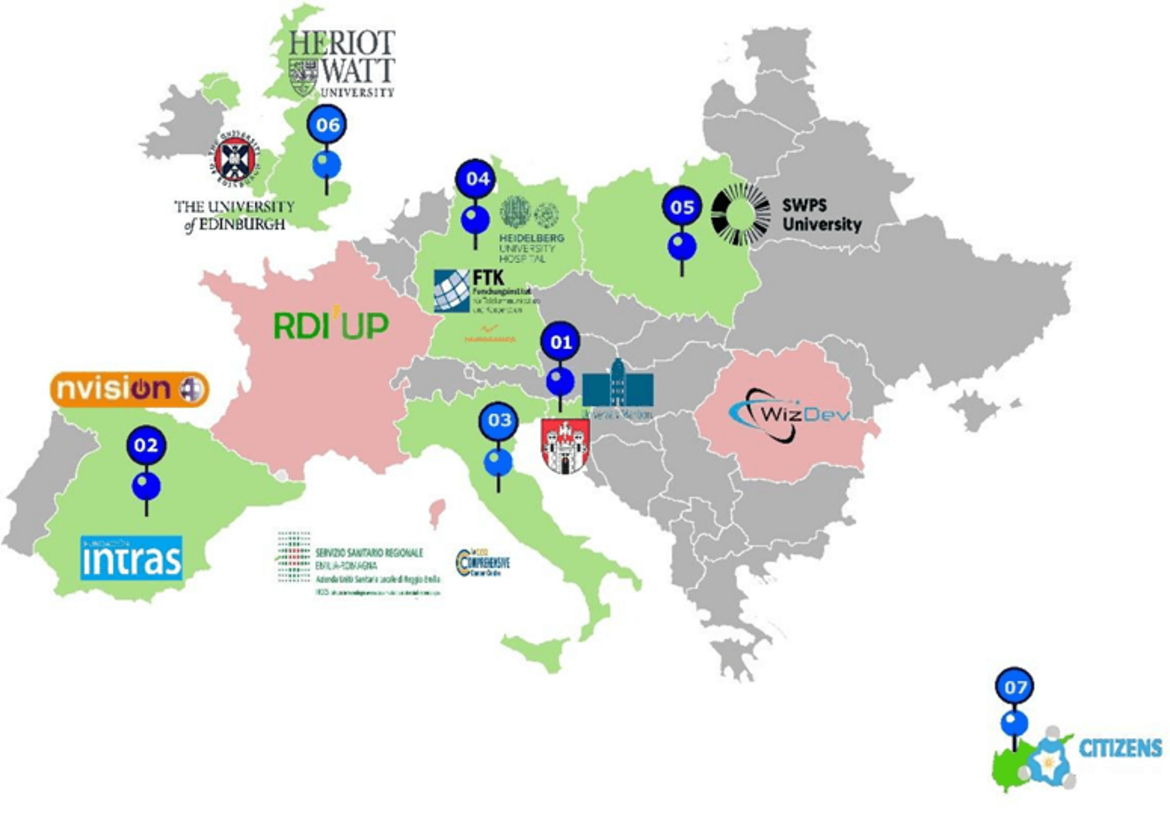
Duration: 01.05.2023 - 31.10.2026
Financial support: This project has received funding from the European Union's Horizon Europe program under grant agreement No°101080923.
HORIZON-HLTH-2022-STAYHLTH-01-01-two-stage
Homepage: https://www.horizonsmile.eu
Movie: https://youtu.be/ynCZlfs2Ibo
Twitter: @HESmile_project
Facebook: @Horizon_SMILE
LinkedIn: HorizonSMILE
Tiktok: tiktok.com/@horizonsmile
Local project lead
PD Dr. med. Jobst-Hendrik Schultz (MME)
Psychosomatic consultation and liaison service
Local working group
Associated partners:
- FTK - Forschungsinstitut für Telekommunikation und Kooperation e. V., Germany (Coordination)
- RDIUP - France
- Heidelberg University Hospital - Germany
- Nurogames GmbH - Germany
- Heriot-Watt University- United Kingdom
- Azienda Unità Sanitaria Locale di Reggio Emilia - Italy
- University Maribor - Slovenia
- Urban Municipality of Maribor - Slovenia
- C.I.P. Citizens in Power - Cyprus
- NVISION Systems and Technologies, S.L. - Spain
- WIZ Development & Services SRL - Romania
- SWPS University of Social Sciences and Humanities - Poland
- Fundación Intras - Spain
- The University of Edinburgh - United Kingdom

